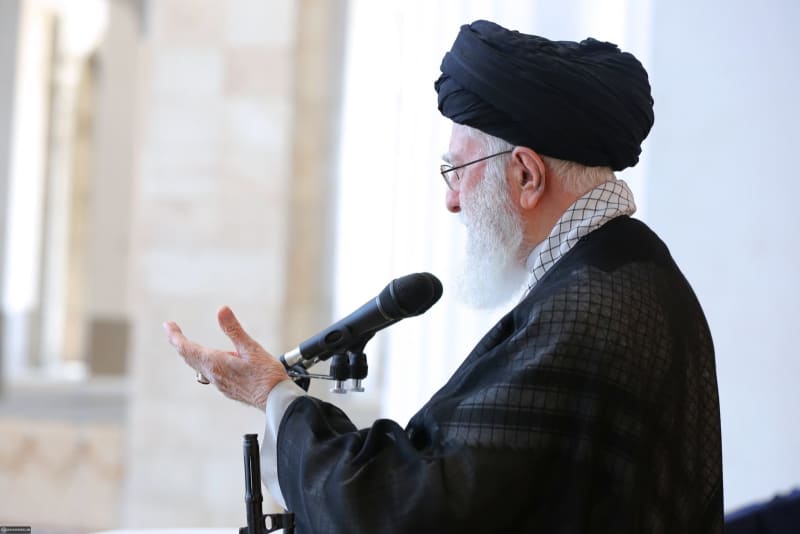Ayatollah Ali Khamenei, Iran’s supreme leader, recently addressed the nation in response to Israeli airstrikes targeting military sites in Iran. He emphasized the need for a measured and strategic approach, showcasing a contrasting tone from his previous pronouncements, which often leaned towards retaliation and revenge. Khamenei asserted that Iranian leadership must decide how to effectively demonstrate the nation’s strength and resolve to Israel, underscoring the importance of actions that align with the country’s best interests. His measured response reflects a conscious effort to navigate the complexities of regional security and diplomatic relations, especially in the wake of heightened tensions.
The backdrop to Khamenei’s remarks is a fraught relationship between Iran and Israel, punctuated by a series of military provocations and retaliations. Within this context, Khamenei’s previous statements have included vows of vengeance following the targeted killings of Iranian military figures and key allies. The tone of his latest address signals a potential shift or a more nuanced strategy in Iran’s response to external threats, particularly in light of mounting casualties and damage to military infrastructure. The tension encapsulates a broader struggle for influence in the Middle East, where military actions often instigate cycles of retaliation that can escalate conflict rapidly.
The official reports indicate that the recent Israeli airstrikes resulted in the deaths of four Iranian soldiers and inflicted damage on several military installations, including critical radar systems. These developments not only signify a direct assault on Iran’s military capabilities but also highlight the ongoing risks faced by Iranian forces amid a volatile geopolitical landscape. Such attacks have historically triggered fierce responses from Iran, yet Khamenei’s recent emphasis on deliberation suggests a potential recalibration of Iran’s military and foreign policy strategies. This could imply a desire to avoid precipitous actions that might lead to broader conflict, acknowledging the profound implications such hostilities could have on the nation’s stability and security.
Khamenei’s call for measured action also resonates with the sentiments of the Iranian populace, which has been grappling with the repercussions of prolonged conflict and economic hardship exacerbated by international sanctions. The supreme leader’s rhetoric appears aimed at unifying the national narrative, reinforcing the necessity of decisions that prioritize the welfare of the Iranian people. This internal focus suggests an awareness that the repercussions of military engagement could have dire social and economic consequences, prompting a need for careful consideration before escalating hostilities with Israel.
Moreover, Khamenei’s remarks are pivotal in shaping the discourse around military engagement in Iran, serving both as a guideline for state officials and a rallying point for military leaders. His status as the ultimate authority in Iranian politics means that his declarations influence strategic planning and military operations. The equilibrium between displaying strength to deter adversaries and avoiding unnecessary escalation is a delicate balance that Khamenei seems intent on navigating, indicating a measured approach rooted in the lessons of past conflicts.
In conclusion, Ayatollah Khamenei’s recent statements represent a strategic pivot in Iran’s approach to external threats, particularly from Israel. His call for a calculated response stands in contrast to the previously more aggressive posturing seen in the Iranian leadership. This shift may reflect broader considerations related to domestic stability, regional dynamics, and the intricate web of diplomatic relations in the Middle East. As Iran grapples with these multifaceted challenges, the leadership’s choice to advocate for prudence may ultimately shape the trajectory of Iranian policy and its engagement with its adversaries moving forward.

